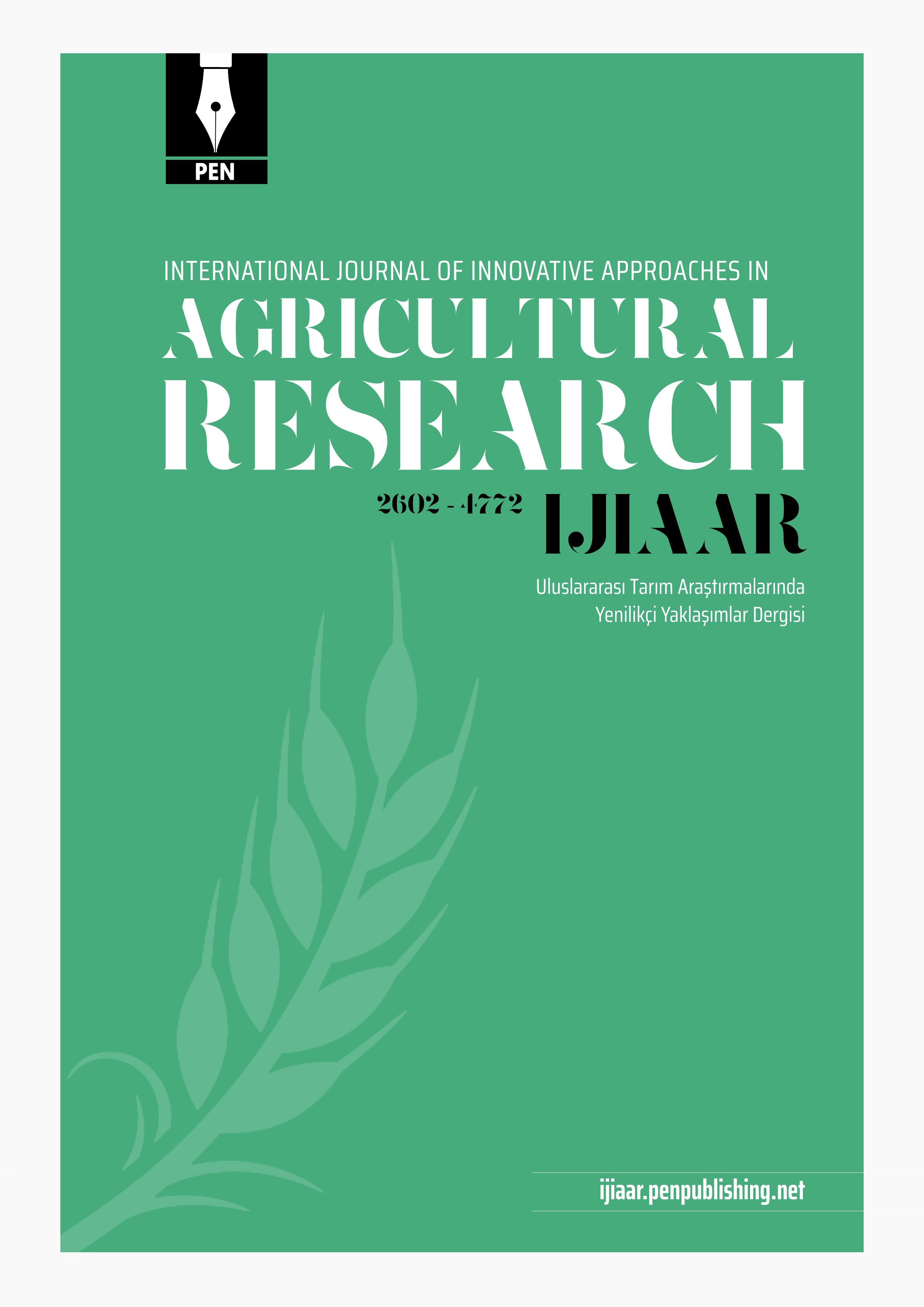
Uluslararası Tarım Araştırmalarında Yenilikçi Yaklaşımlar Dergisi
Yazarlar: Tamara Mihociu, Alina Culetu, Enuta Iorga , Nastasia Belc
Konular:-
DOI:10.29329/ijiaar.2019.217.4
Anahtar Kelimeler:Cold pressd walnut oils,DSC,Authenticity,Food control
Özet: This paper presents the potential of differential scanning calorimetry (DSC) method to be applied in adulteration of cold pressed walnut oil (Junglas Regia). Two brands of cold pressed walnut oil were adulterated with 5% and 10% of refined sunflower oil. Thermal curves profile of oil samples was correlated with the level of oils oxidation determined by OxiTest and the lipids profile was determined by gas-chromatography/mass spectrometry (GC/MS). An increase in the lipid oxidation values was recorded for one brand of cold pressed walnut oil. Based on the lipid profile analysis, differences between samples were observed regarding the linolenic acid which was reduced by 0.1-0.4% in cold pressed walnut oil adulterated with 5% refined sunflower oil and 1.1% in the samples adulterated a percentage of 10%. A clear differentiation between samples was found on the thermal crystallization curves where in 2 temperatures area (-17°C _ -20°C and -37°C_ -48°C), the thermal energy transferred indicated different degrees of freedom of the TAGs compositions. Also, it was observed that a temperature area (-52°C_-59°C) where the crystallization temperature (Tc) of the dilutions is very close to the Tc of the adulterated oil. The DSC method used in this study highlighted the adulteration of cold pressed walnut oil on the crystallization thermal curves.